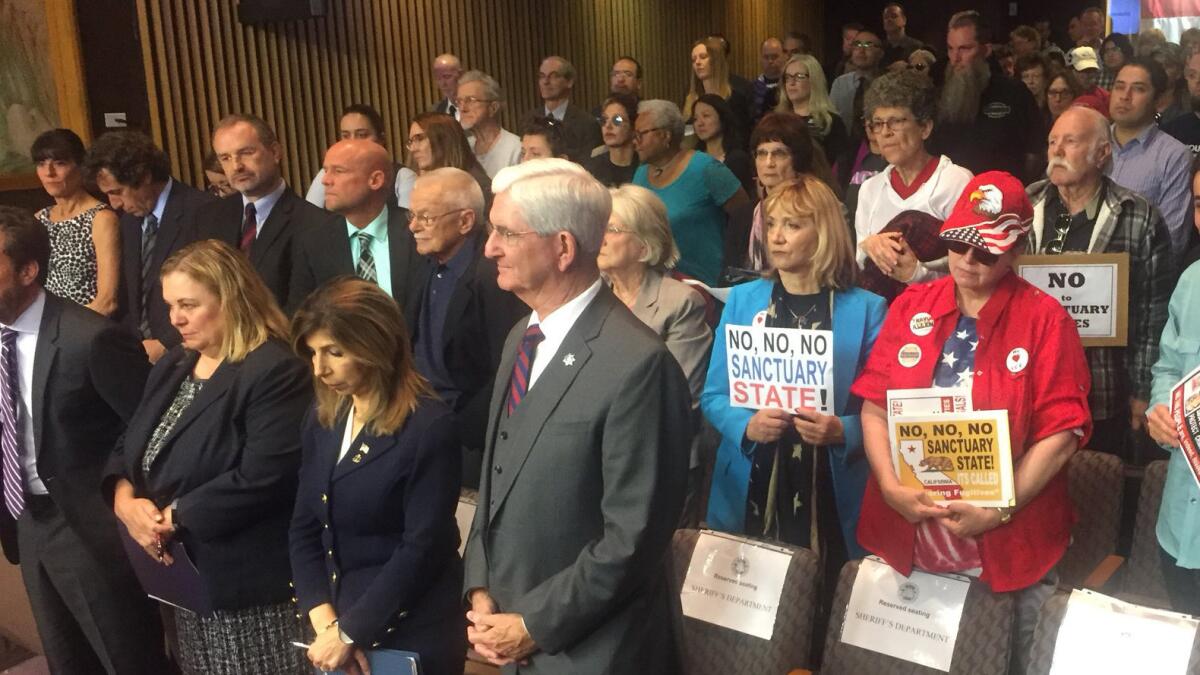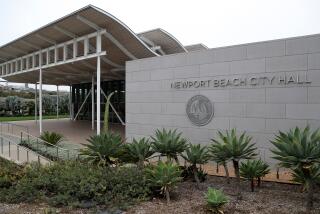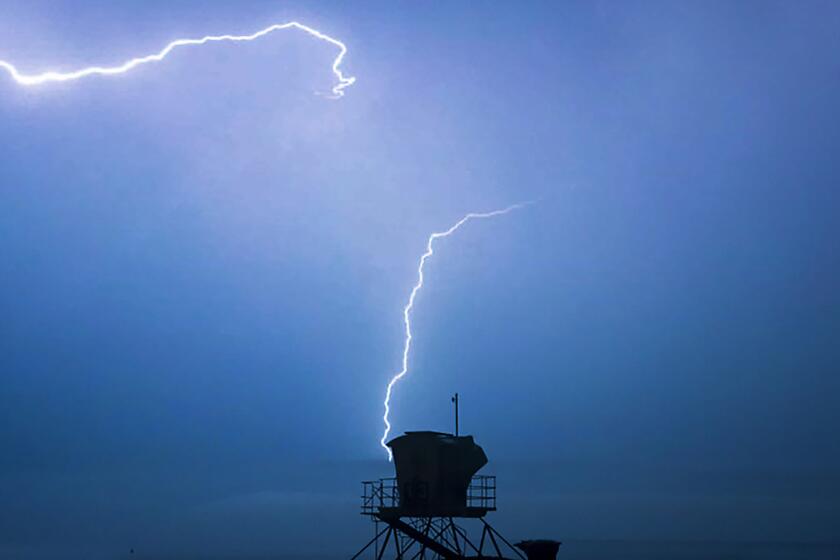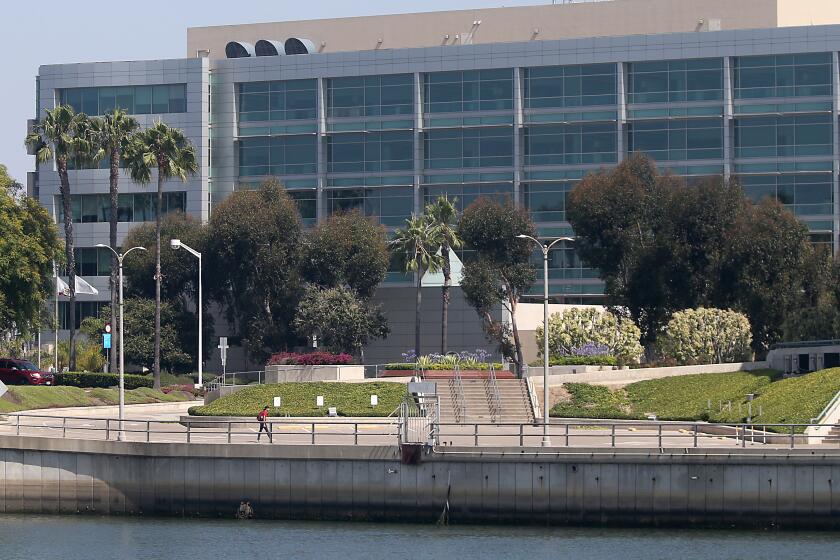San Diego County becomes the latest to fight California sanctuary state laws

The San Diego County Board of Supervisors voted 3-1 Tuesday to support the Trump administration’s lawsuit against California over so-called sanctuary laws that the state passed last year to limit its role in immigration enforcement.
The county will file an amicus brief at the first available opportunity, probably if the case moves to a higher court on appeal, said Supervisor Kristin Gaspar, chairwoman of the board.
The board voted in closed session after 45 minutes of public comment in which most speakers in the packed chambers urged the supervisors to vote against supporting the lawsuit.
Margaret Baker, who lives near the border, told the board that backing the lawsuit would discourage immigrants from reporting crime.
“We see this lawsuit as an attack on our safety and the well-being of our community,” she said.
David Garcias, president of the San Diego chapter of the union that represents county government employees, told the supervisors, “I believe you’re on the wrong side of history. This will affect your legacy.”
The three supervisors who voted to support the lawsuit said it was about public safety.
“We’re talking about people who are crossing the border illegally, coming into this county and committing a crime and them being let loose probably to commit another crime,” said Dianne Jacob, supervisor for the district that covers East County. “That creates a public-safety issue and creates a problem in our neighborhoods.”
She worried about terrorists crossing the border illegally, she said.
“This is a different day than it was 20, 30, 40 years ago,” Jacob said. “That’s why it was important for us to stand up, as controversial as it was.”
Gaspar said San Diego was safer before the new laws, specifically Senate Bill 54, went into effect. SB 54 limits the ways in which local law enforcement officers can interact with federal immigration officials.
“The status quo was safer in San Diego,” she said, adding that now immigration officers make more arrests out in the community because they can’t make those arrests at jails. “The best place for ICE to be is in the jail and not out in the community.”
During the announcement of the vote, Gaspar showed printouts of emails she received from each side of the debate. The stack of emails criticizing her for considering support for the lawsuit was not much thicker than a legal pad. The stack of emails asking her to support the Trump administration’s legal challenge was more than a foot tall.
Gaspar, Jacob and Supervisor Bill Horn, who represents the northernmost part of the county, voted to support the lawsuit. Supervisor Greg Cox, whose district covers the South Bay, voted against it. Supervisor Ron Roberts, who represents central San Diego, was traveling abroad and did not attend the meeting.
Cox said immigration issues need to be solved in Washington.
“The board’s vote is a largely symbolic move that will create fear and divisiveness in our region, waste taxpayer funds and create distrust of law enforcement and local government within many communities,” Cox said.
The Department of Justice filed the lawsuit against California at the beginning of March over three laws.
SB 54, the law that received the most publicity when it passed, allows officers to turn unauthorized immigrants over to federal immigration enforcement agencies only if they have committed crimes listed in the legislation. It says local police cannot participate in task forces that are focused on immigration enforcement.
It also requires the California attorney general to set policies limiting assistance with immigration enforcement at public schools, libraries and hospitals.
Assembly Bill 103 prohibits local governments across California from adding new contracts with the federal government for civil immigration detention or expanding old ones. It also requires the California Attorney General’s Office to monitor conditions in existing immigration detention facilities in the state.
AB 450 prohibits employers from voluntarily allowing immigration officials into non-public areas of the workplace unless the officers have judicial warrants. It also requires employers to notify employees about upcoming immigration inspections.
Morrissey writes for the San Diego Union-Tribune.
More to Read
Start your day right
Sign up for Essential California for news, features and recommendations from the L.A. Times and beyond in your inbox six days a week.
You may occasionally receive promotional content from the Los Angeles Times.






